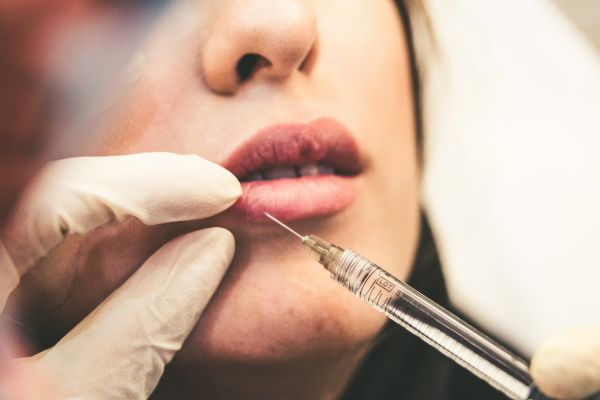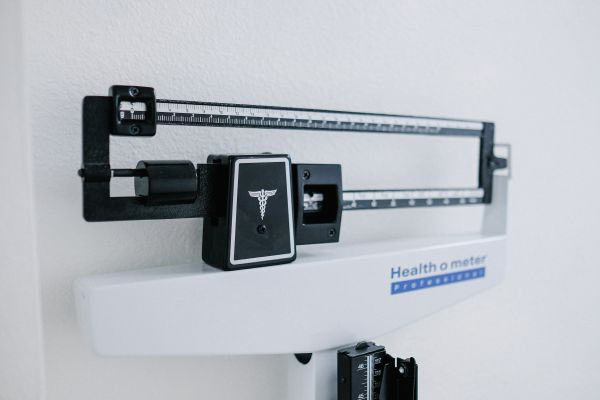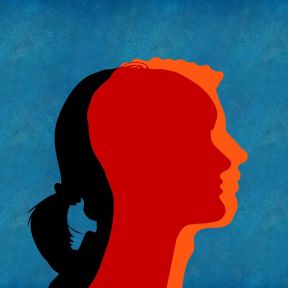
Body Image
What do you think you look like? Body image is the mental representation an individual creates of themselves, but it may or may not bear any relation to how one actually appears. Body image is subject to all kinds of distortions from the attitudes of one's parents, other early experiences, internal elements like emotions or moods, and other factors. The severe form of poor body image is body dysmorphic disorder, where dissatisfaction over a slight or undetectable defect in appearance becomes a severe obsession.
Contents

Poor body image can affect a person in many ways, including performance in academics or in one’s professional career, relationship satisfaction, and overall quality of life. Often a person zeroes in on a specific area like the nose, breasts, or legs. In reality, however, this perceived flaw is not even noticeable to others. People who suffer from severe levels of disorder obsess over a flaw to a point of dysfunction, with some people even repeatedly visiting cosmetic surgeons.
Body dissatisfaction can be minor, too bad my nose is so big, or it can be severe, I hate everything about my body. Once you start to think that you have a flaw, your mind runs with the distraction and turns it into more than it is. All of which affects the way you think and feel about how you look, and about life in general.
Yes. Body dysmorphic disorder is more prevalent in people who opt for cosmetic surgery. Compared to the 1 to 2 percent prevalence of BDD in the general population, rates of up to 7 to 15 percent have been identified in the cosmetic surgery population.
Being exposed to images of airbrushed supermodels and perfectly sculpted celebrities, even briefly, can trigger body shame, body dissatisfaction, depression, anxiety, and eating disordered behaviors.

Research has found that even young children can display excess concern about body weight, but fortunately many children outgrow these worries. And children experiencing body awareness, sometimes as young as age 8 or 9, are more likely a reaction to peer pressure and self-consciousness rather than suffering from any true disorder. But a distorted perspective can be real for people from the pre-teenage years through to adulthood, with more women than men suffering.
Thoughts and opinions about one’s body can start forming as early as 3 years of age. Often this is a direct result of a parent’s relationship with their own bodies. How a parent sees herself is influential and can mold a child’s ideas about their body.
A person's body image strongly influences their behavior. Preoccupation with, and distortions of, body image have been found to be widespread among American women and, to a much lesser extent, among males.

In the midst of body image angst, people tend to forget about the body's important utility, and it does so much for us, too--our bodies get us from point A to point B, for example. Yet many people remain mired in a world where physical looks take primacy. To put body image back into perspective, experts suggest that you curb the use of social media, platforms where visitors are constantly reminded of the outsize value placed on looks and image are ill-advised. And if snapping a selfie makes you feel worse, then avoid it. No one deserves to go through life hating the place where they live – their body. Body image should not hinge on whether a person looks like a runway model. It's possible for a person to have a better view of their body no matter what it looks like.
Consider everything your body does for you. Thank the different parts of your body. Do your arms let you hold the people you love? Do your legs take you on walks to beautiful places? Do your hands help you express yourself? Write your body a letter of gratitude for the ways it has served you throughout your life.
Encourage your friend to talk about how they feel, yet discourage negative talk that shames them about their body and weight. Also engage in positive activities together, eating healthy and working out as friends, for example.
People who harbor a negative view of their bodies may have chronic bleak and obsessive thoughts about the way they look. Here are some other signs of poor body image:
- Focuses excessive attention on a minor flaw in appearance.
- Views oneself as unattractive, even ugly.
- Fears other people can see the so-called deformity.
- Might be a perfectionist.
- Avoids social engagements.
- Constantly grooms and looks at oneself in the mirror.
- Constantly hides the perceived flaw with makeup or clothes.
- Constantly compares one’s appearance with other people’s.
- Pursues excessive cosmetic procedures or surgery.
- Needs reassurance from others ("Do I look fat in this?").
- Is never satisfied with appearance.














